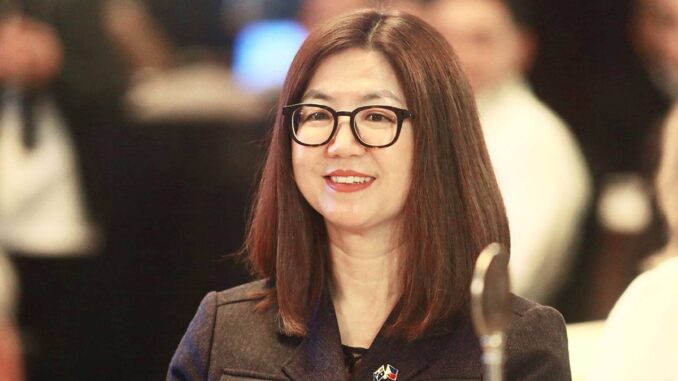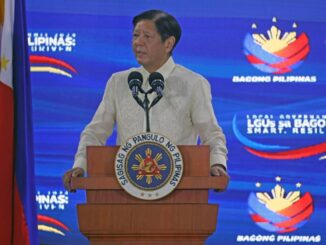
AUSTRALIA has increased its civil maritime investment in the Philippines to P656 million over Canberra’s concern over the pattern of dangerous and aggressive conduct by China in the region.
The Australian and Japanese ambassadors to the Philippines on Wednesday expressed their respective countries’ continued support for the Philippines amid China’s aggression in the West Philippine Sea.
They made their separate statement during the Pilipinas Conference 2024, organized by the Stratbase Group.
Australian Ambassador Hae Kyong Yu
Australian Ambassador Hae Kyong Yu said Australia has increased its bilateral civil maritime investment in the Philippines to P656 million.
“I’m very pleased to announce that today [Australia’s civil maritime investment] will double in size to P656 million. It’s pretty good. Collectively, these investments expand government and institutional cooperation on practical maritime activities,” she said.
Yu said Australia is also proud to join vessels from the Philippines and other states in various maritime cooperative activities.
“We will continue to do so because these activities build habits of cooperation and trust,” she said.
“As we have made clear, Australia remains concerned about the pattern of dangerous and aggressive conduct by China, including against Philippine vessels at Second Thomas Shoal and Sabina Shoal. We want a region where we can all cooperate, trade, and thrive because that’s what it’s all about in the end,” Yu said.
Japanese Ambassador Endo Kazuya said Japan will “continue to be supportive to the Philippines in enhancing its maritime law enforcement capabilities.”
“Japan highly appreciates the Philippine government’s efforts, including its commitment to the 2016 Philippine-China arbitral award,” Endo said. “We recognize the critical importance of the secure maritime domain for both our nations and the broader region.”
The Permanent Court of Arbitration in 2016 invalidated China’s nine-dash line in the South China Sea, which encroached on the Philippines’ 200-mile exclusive economic zone.
“Our dedication to deepening security cooperation with the Philippines is resolute, and we are also committed to strengthening trilateral partnerships with the Philippines and the United States,” Kazuya said.
Philippine Ambassador to the United States Jose Manuel Romualdez raised the importance of upholding multilateralism by reinforcing partnerships across the globe.
“By strengthening ties with like-minded nations and regional organizations, we simplify or amplify our call for adherence to the international law and to the international rules-based order, and countering unilateral actions that undermine legal norms,” he said.
“Through maritime dialogues and cooperation, we continue to expand our political consultation and mechanisms with countries where we have diplomatic relations, with maritime cooperation as the situation in the South China Sea as a staple agenda item,” Romualdez said.
Stratbase Group President Dindo Manhit raised the importance of strategic collaboration with like-minded states amid increased tensions in the region “caused by the unlawful and coercive actions of a hegemonic neighbor.”
“At Stratbase, we believe that peace and stability are every country’s business. As a rising middle power in the Indo-Pacific, the Philippines cannot address these challenges on its own,” he said.
“The strategic thing to do for a country like ours is to simultaneously build our external defense capabilities and strengthen our relations with like-minded partners. Collective action is not just ideal — it is necessary,” he said.
Manhit said multilateralism is a principle by which the Philippines lives by as seen in the country’s engagements this year with Australia, Canada, European Union, Japan, New Zealand, Norway, Poland, Republic of South Korea, Vietnam and the United States, among others.
“The Philippines needs trustworthy partners who respect international law and sovereignty. Our friendships and partnerships with countries that share our democratic values magnify our efforts, from asserting our rights in the West Philippine Sea to defending our cyberspace all in accordance with the rule of law,” he said.





Be the first to comment